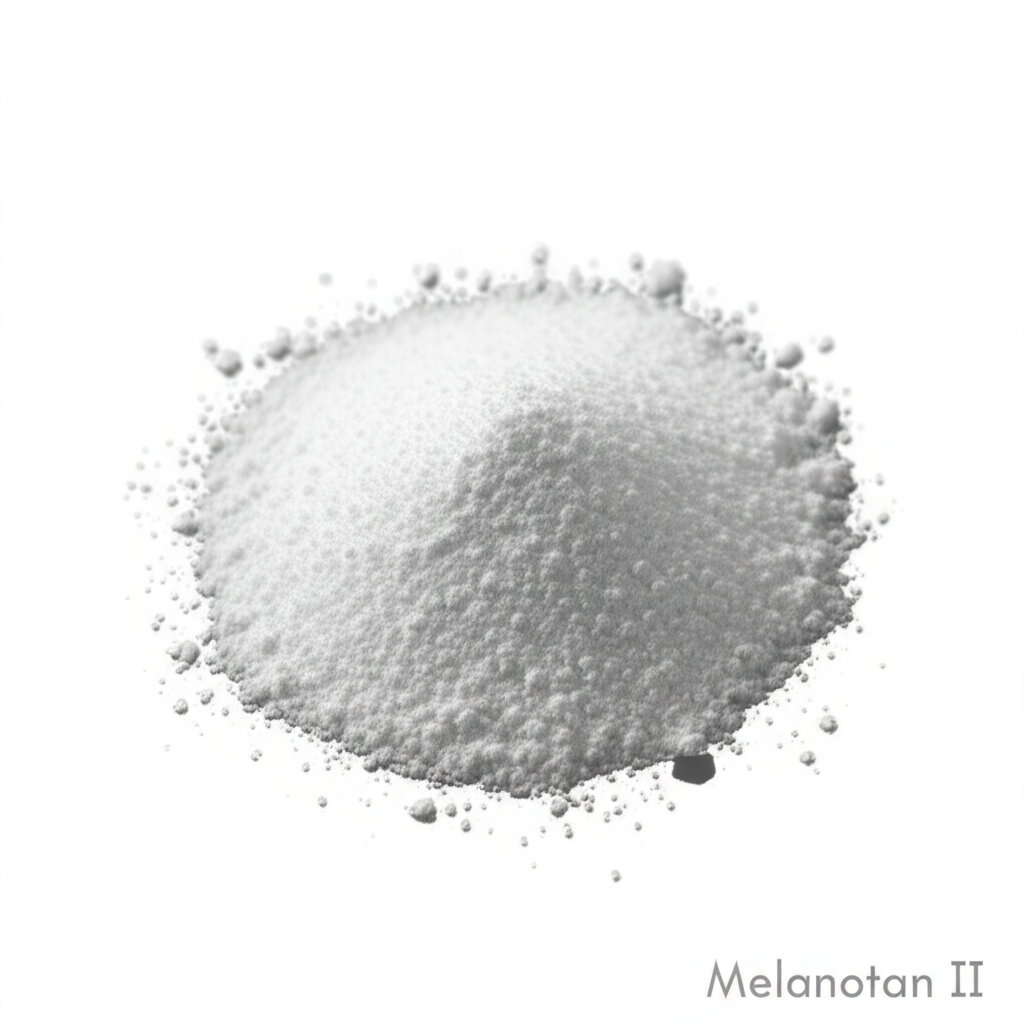Melanotan II: Understanding the Risks and Realities of this Tanning Peptide
Explore the purported benefits and significant dangers of Melanotan II for skin tanning.
Get a Quote & SampleProduct Core Value

Melanotan II
Melanotan II (MT-II) is a synthetic peptide that mimics the natural hormone alpha-melanocyte-stimulating hormone (α-MSH). It is primarily used to stimulate melanin production in the skin, leading to a darker tan without excessive sun exposure. While often promoted for its tanning effects, it also has reported influences on libido and appetite suppression. However, its use is fraught with potential health risks due to its unregulated status.
- Understanding the risks of Melanotan II is crucial before considering its use; many health agencies warn against it.
- The potential for Melanotan II to cause melanoma or changes in existing moles is a significant health concern.
- Exploring safer, regulated tanning alternatives is strongly advised over the use of synthetic tanning peptides.
- Be cautious of social media endorsements for Melanotan II, as they often downplay the serious side effects.
Key Advantages and Considerations
Stimulates Melanin Production
Melanotan II is designed to increase melanin production, resulting in a tanned appearance, which is a primary reason users seek out this peptide.
Potential Libido and Appetite Effects
Beyond tanning, some users report effects on libido and appetite, though these are not its primary intended uses and come with their own set of risks.
Unregulated Status and Risks
A significant concern is the unregulated nature of Melanotan II, meaning there's no guarantee of purity, correct dosage, or absence of contaminants, posing serious health threats.
Key Applications
Skin Tanning
The most common application for Melanotan II is to achieve a darker skin tone, simulating a suntan without prolonged UV exposure, a practice widely discouraged by health professionals.
Sexual Function Enhancement
Some research and anecdotal reports suggest Melanotan II may influence sexual function, though this is not its primary approved use and carries potential side effects.
Appetite Suppression
Users have reported a decrease in appetite and potential weight loss effects, attributed to its interaction with certain receptors in the brain.
Research & Development
While not approved for general use, related compounds are being researched for specific medical conditions, highlighting the complexity of peptide science.
